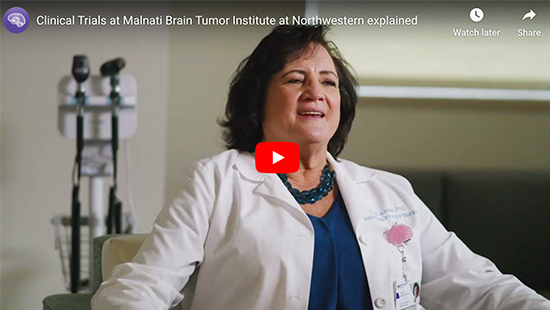Clinical Trials
The Northwestern Medicine Lou and Jean Malnati Brain Tumor Institute of the Lurie Cancer Center is committed to providing the most advanced treatments available for patients with brain and spine tumors, and to developing clinical research that will lead to tomorrow’s care.
For best results, use specific search terms (e.g., "glioblastoma" instead of "brain tumor") below. We do our best to keep these listings up-to-date, but we may sometimes have trials available that are not yet listed. To inquire about other clinical trials or to learn more about the clinical trials listed here, please contact cancertrials@northwestern.edu or call 312-695-1102. You can also view a list of open Lurie Cancer Center clinical trials for all types of cancer.
